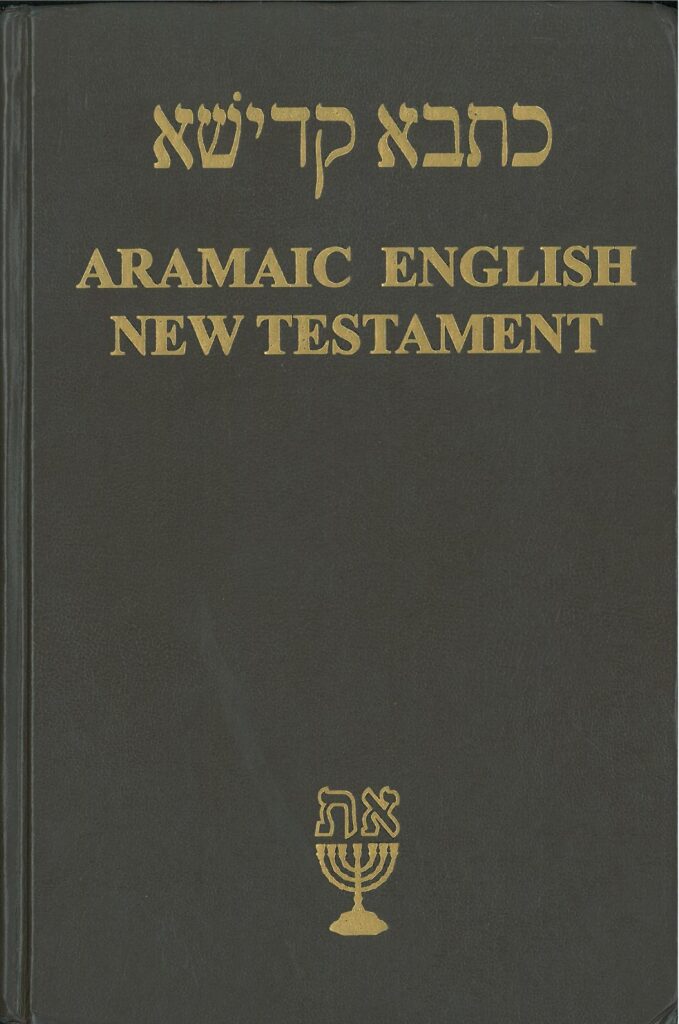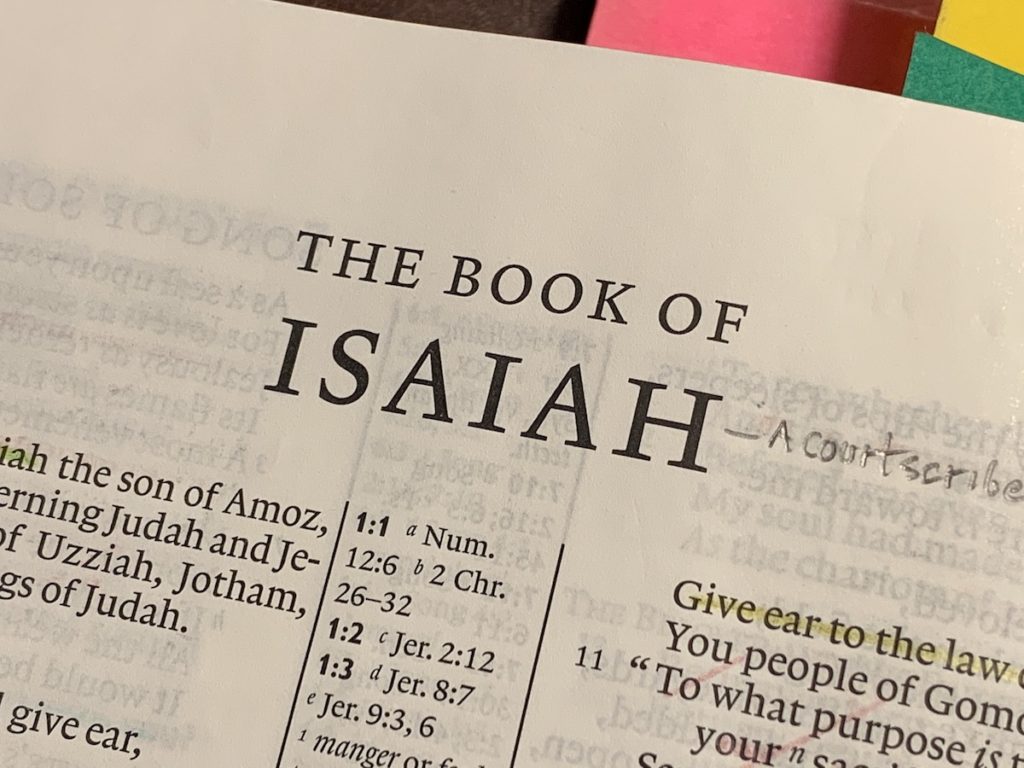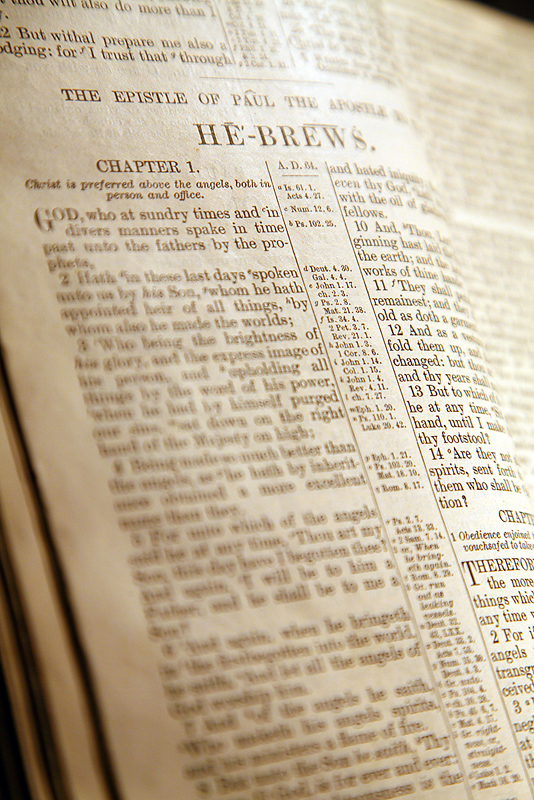
In this discussion, Nehemia Gordon gives proof that the Aramaic Peshitta New Testament was translated from the Greek, not the other way around. For the video version of Nehemia Gordon’s discussion with Michael Rood, go to:
The following is the transcript of this discussion between Nehemia Gordon and Michael Rood:
Michael: And then I was talking to him about the Peshitta, he said, “We don’t use the Peshitta. The Peshitta, Aramaic text…”
Nehemia: Let me stop you. This is the head scholar of the Aramaic…
Michael: Syrian Orthodox…
Nehemia: Aramaic-speaking church in Jerusalem.
Michael: And the head scholar of the Syrian Orthodox Church.
Nehemia: In Jerusalem.
Michael: In Jerusalem.
Nehemia: Wow.
Michael: He is the top of the entire school, okay? He is an old man, he’s in his 80s. And he said, “We don’t use the Peshitta. The Peshitta is a later Aramaic translation from the Greek.
Nehemia: Look, I’ve spoken to scholars about this. In fact, I sat down with a scholar at the Hebrew University of Jerusalem and I told him, “You know, people have suggested that this Aramaic Peshitta is the original Aramaic that Jesus, that Yeshua, spoke and taught, and the Greek is a translation from the Aramaic,” and this guy was an Aramaic scholar, specifically of Syriac-Aramaic, which the Peshitta’s written in. Actually, when I walked into his office, he was looking at this giant… it was like this big, this dictionary of Peshitta Aramaic. And I asked him for some proof, so I said, “Well, how can we know? You’re telling me…” I mean, look, people will tell you that this Hebrew Matthew, that this isn’t the original Matthew, it was written in Greek, so why would I believe you when you tell me that the Aramaic isn’t the original? The Greek is the Aramaic? I said, “I need some proof. I can’t trust your word for it.”
And this was just for me, I don’t think I’ve ever even shared this. I really just wanted to know for myself. And so, he started off, he told me a bunch of linguistic things about how the Aramaic that Yeshua spoke was completely different than the Aramaic that the Peshitta is written in. It’s a completely different dialect of Aramaic. He said, “It would be like the difference between German and Dutch.” Dutch is the language they speak in Holland. I don’t speak either of those languages, I read a little German. German is called in their language, “Deutsch”, and you have “Dutch”, which is the language of Holland. Originally, they were obviously a single language, but now they’re incomprehensible to one another, unless you’re from the border area there. But the German people can’t understand Dutch. But they’re that similar. The Aramaic that Yeshua spoke and the Aramaic the Peshitta is written in are similar, but they’re also different enough to be, essentially, he said if it was any other language, they’d be called two different languages. But for Aramaic, we consider all these different, very vastly different dialects, one language.
And he gave me specific examples I won’t go into, but you could look up at any Peshitta grammar, it’ll tell you what those differences are. They’re profound differences. But then he gave me some really powerful examples. I’m like, “This is it, it’s the end of the story. We’re done.” I wanted to know, and he answered me. Here’s an example of one of the things he showed me.
So, the Hebrew word for “covenant” is “brit”. Now, in American Jewish-speak we call it a “bris”, and that’s because the Hebrew letter Tav when it has a dot in it, it’s a tuh. When it doesn’t have a dot, it’s a thuh or in some dialects, suh. So, “brit, bris, brees.” It’s the same word, different pronunciations of Hebrew. So, the word is “brit” or “bris”, like I had my “bris” on the eighth day, the covenant, the circumcision, in that case.
Genesis 6:18 says, “I will establish My covenant with you.” The word is “diatheke”. “Diatheke” is the Greek word for “covenant”. Aramaic has a perfectly good word for covenant. The Aramaic word for covenant is “kiyam”. It comes from the Hebrew word, the Semitic root, “lakum, lehakim”, “to establish”. That word also appears, a form of that, in the Hebrew connected to covenant, but the actual word for covenant is “brit”, and you say, “lehakim brit”. And so, Aramaic takes that and it’s “kyam”, that’s the word for “covenant”.
So let’s look in the Targum, that’s the ancient Jewish translation of the Tanakh. And there, in the very same verse, Genesis 6:18 it says, “Ve’akeim yatkiami,” “And I established My kiyam,” “My brit, My covenant”. If you looked in the Peshitta, if it was the original Aramaic, you would expect the word “kiyam” to be used all over the place as the word for “covenant.”
Michael: Yeah, look in the…
Nehemia: In the New Testament.
Michael: Right, the New Testament, in Matthew, etc.
Nehemia: Right. So Matthew 26:28, I’m just choosing a verse here that has the word “covenant”. It says, Yeshua says here, “For this is My blood of the covenant.” Okay, so in the Greek, it has for covenant, “diatheke”, same word as when it translated “brit” in the Tanakh. So, we have Hebrew, “brit”, Aramaic, “kyam”, Greek, “diatheke”. What do you think you have in the Peshitta? The Peshitta’s Aramaic. Some people say it’s the original Aramaic that Yeshua spoke. Surely, you have the word “kiyam”, the Aramaic word for “brit”. And that would be a great word, because also, you get from that the word “lakum”, which means “to rise up”.
So, if the word “covenant” were connected to “rise up”, and Yeshua’s saying, “This is the blood of My rising up, of My covenant,” that would be a powerful message. But in the Peshitta, you don’t have “kiyam”, you have “diatheke”.
Michael: It’s Greek.
Continue reading







